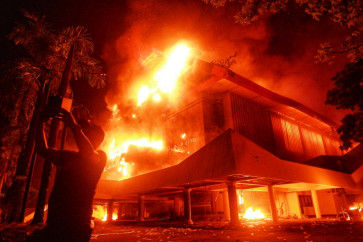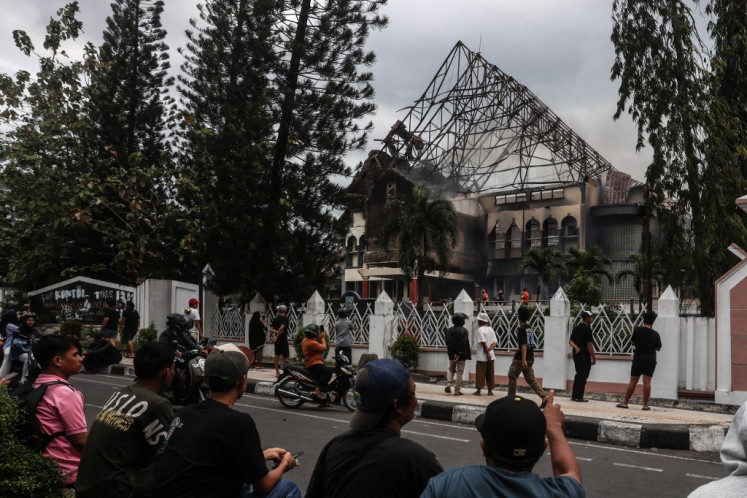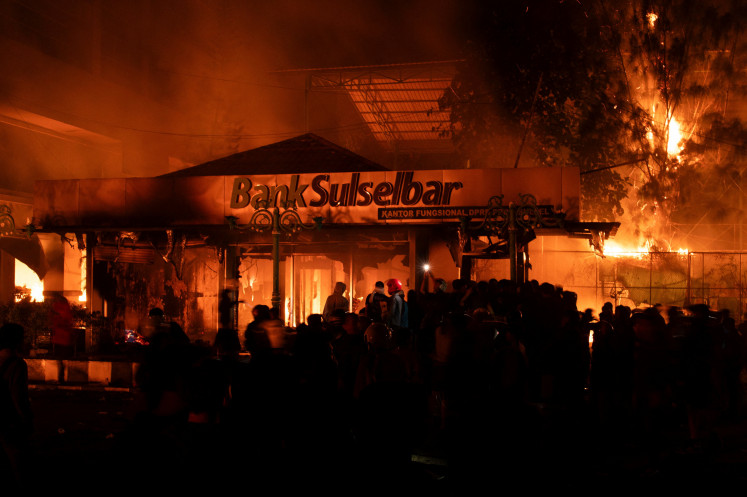Popular Reads
Top Results
Can't find what you're looking for?
View all search resultsPopular Reads
Top Results
Can't find what you're looking for?
View all search resultsHigh-potential Masela gas block development remains uncertain
The future of the nationâs gas supply is being blurred by issues surrounding the development of the high-potential Masela block, while other similar facilities are nearing the end of their lifespan
Change text size
Gift Premium Articles
to Anyone
T
he future of the nation's gas supply is being blurred by issues surrounding the development of the high-potential Masela block, while other similar facilities are nearing the end of their lifespan.
Due to its massive estimated reserves of 10.73 trillion cubic feet (tcf), Masela is expected to be the major new source of energy in the country. However, acceleration of production is unlikely because the government has yet to decide whether the block will be developed on a floating offshore liquefied natural gas (LNG) plant basis or an onshore scheme.
'A POD [plan of development] is a technical issue. However, as the block has a territorial issue, being located near Australia, the President is paying attention to it. The President has asked for a deeper study on regional aspects and will also listen to investor's intentions,' Energy and Mineral Resources Minister Sudirman Said stated during a hearing with the House of Representative Commission VII on Monday.
'SKKMigas officers are currently in the area to study the potential for regional development,' he added.
It is unclear when additional studies can be completed.
A decision on contractors' revised plans of development was expected last year. However, controversy arose after critics from within the Cabinet, including Coordinating Maritime Affairs Minister Rizal Ramli, said an onshore scheme should be chosen because it would be cheaper, create more jobs and encourage development in eastern Indonesia.
The Masela block, located in the Arafura sea, is currently operated by Inpex, which holds a 65 percent stake. The remaining 35 percent is held by Shell. The Masela POD was actually submitted in 2010, however, the discovery of larger resources led contractors to revise the plan, adjusting up the capacity of the floating LNG plant to 7.5 million tons per year from 2.5 million tons.
The block is estimated to be able to produce 1,200 million standard cubic feet per day (mmscfd) of gas and 24,000 barrels per day of condensate for 24 years, according to figures from the Energy and Mineral Resources Ministry.
According to a study from LPEMUI, a one-year project delay would mean billions of dollars in potential losses to the economy, ranging from US$3.6 billion under the onshore plan to $4.2 billion under the floating scheme.
To date, the country has a number of onshore LNG plant facilities, including Badak NGL in Bontang, East Kalimantan; Tangguh plant in Papua; and the modified Arun plant in Aceh.
Due to depleted resources from nearby fields, worries emerged over the effect of the Arun plant closure before the government decided to modify the facility. It now no longer produces LNG as it has been modified to become a re-gasification terminal, which receives LNG cargo from other sites, re-gasifies it and then delivers the product to end users.
Concerns of depleted resources are now also disturbing the Bontang plant. Badak NGL president director Salis Aprilian said the company would likely close another LNG train over concerns of declining supply from Mahakam block, which is currently transitioning between operators in readiness for its contract expiry in 2017.
Apart from Mahakam, Badak NGL also receives supply from East Kalimantan PSC. The contractor of the block, Chevron Indonesia, recently said it would not request a contract extension for the block and would return the PSC to the government on its expiry date on Oct. 28, 2018.
Uncertainty around the production sustainability of East Kalimantan PSC is a worry for the Bontang plant. 'We will likely end the operation of our current trains. So, there will be only three trains in operation next year, out of the eight we have. There will also be technical issues, commercial and organizational, that we haven't settled,' Salis said.










